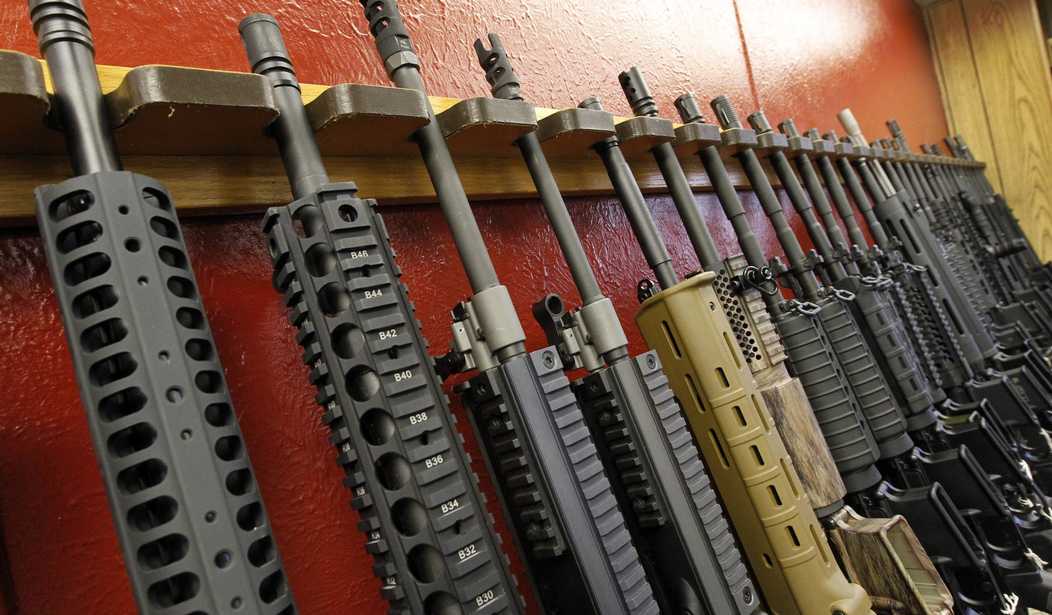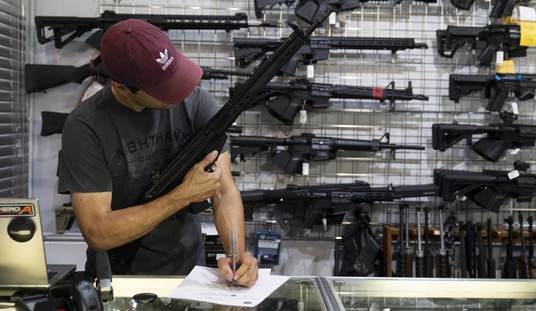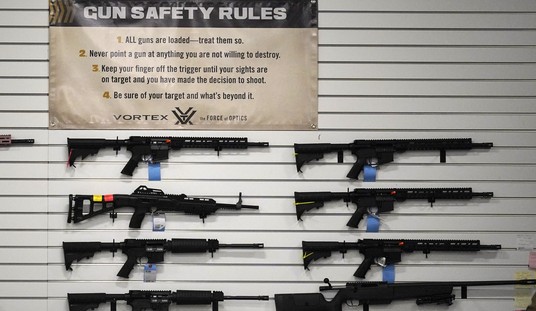While most gun owners groups are taking a “hell no” approach to the Senate deal announced on Sunday, the firearms industry’s leading trade group is adopting a more “wait-and-see” approach. Speaking with ABC News, National Shooting Sports Foundation spokesman Mark Oliva said that the organization is “encouraged” by what he calls “good faith” negotiations, and that they’re pleased than gun bans and further age restrictions on gun purchases were not a part of the framework released on Sunday.
Still, Oliva stopped short of endorsing the agreement, even in principle, and said that the NSSF is still waiting to see what the specific legislative language looks like, particularly when it comes to the proposed laws incentivizing state-level “red flag” statutes and expanding the prohibitions on gun ownership to include those convicted of misdemeanor domestic violence crimes against dating partners and opening up juvenile criminal records when adults under the age of 21 purchases a firearm at retail.
“We as the NSSF had issues with possible bans on hardware or possibly raising the age, which we would view as unconstitutional,” Oliva detailed.
“Those are off the table but there are some that we want to make sure we’re keeping an eye on that they’re going to be written fairly tightly, to include what’s being referred to as ‘loopholes’, you know, who qualifies under these ‘loopholes’? So when we start to expand the definition of these prohibited individuals we want to make sure that we are in fact making sure that those people who should never have their hands on a firearm are included in that, and that those definitions aren’t written so loosely that they would also ensnare people who are not in violation of the law.”
Despite those notes of caution, Oliva didn’t object to the scope of the framework, saying that the NSSF is “encouraged” that the discussions that brought about the agreement were done “in good faith.”
“Again, we’re all interested in seeing what the text will be when it comes out, but we still have concerns. We want to make sure that there are strong due process protections that are written into these incentives for states to write their own ‘red flag’ laws. Your due process rights are a constitutional right and they need to be protected in any legislative text going forward.”
All that raises the question of what, exactly, would be strong enough due process protections to win the support of NSSF? The ABC anchor didn’t press Oliva for specifics, but an NSSF fact sheet from 2020 might provide some clues.
Normally, to deny a fundamental civil liberty there must be a pre-deprivation hearing on notice and with an opportunity to participate, unless given the exigencies of the circumstances it is not feasible to hold a pre-deprivation hearing. In that case, due process requires a prompt post-deprivation hearing, e.g. 24-72 hours. For example, when a person is arrested and in custody, he or she must be arraigned before a judge within 24-72 hours. It is unconstitutional and a violation of due process for one to be held in jail for a week or more before being arraigned before a judge. Several of the existing state “red flag” laws do not provide for a pre-deprivation hearing. They also do not provide for a post-deprivation hearing until 14 days have passed. Two weeks to wait for a due process hearing when a person’s fundamental civil liberties – their Second Amendment right to keep and bear arms – has been infringed upon by the government is simply not consistent with the constitutional requirements of the Due Process Clause. In addition to the constitutional requirement for adequate due process, an ERPO bill should provide that it can only be issued upon sworn testimony and showing by clear and convincing evidence that the person that is subject of the petition (“respondent”) is an immediate and imminent threat to themselves or others. ERPO legislation should provide for the appointment of counsel paid for by the government if the respondent is unable to afford counsel.
The legislation should also provide that making a false statement in support of a petition for an ERPO order is a criminal offense. And, the respondent should have a statutory civil cause of action against a person making a false statement. Other considerations when drafting ERPO legislation is the duration of the order and providing for periodic judicial review of the order to determine whether the respondent remains an immediate and imminent risk to themselves of others. When lawmakers are drafting new “red flag” proposals, these details must be considered to protect the Second Amendment and Due Process rights of Americans.
We’ll see just how many of those concerns are addressed when the actual text of the legislation emerges, but I would be shocked if things like access to public defenders or a post-deprivation hearing within 72 hours are included in the final language, if for no other reason than those aren’t typically a part of any of the existing “red flag” laws in place in 19 states. Florida’s law, approved by Republicans in 2018, for example, allows 14 days between any pre-deprivation hearing and a post-deprivation hearing, and if you can’t afford to hire an attorney one will not be provided for you.
Will the exclusion of any of those items be enough to get NSSF to oppose the Senate gun deal? With senators rushing to have a vote by the end of July if not earlier, we likely won’t have to wait too long to know the answer.








Join the conversation as a VIP Member